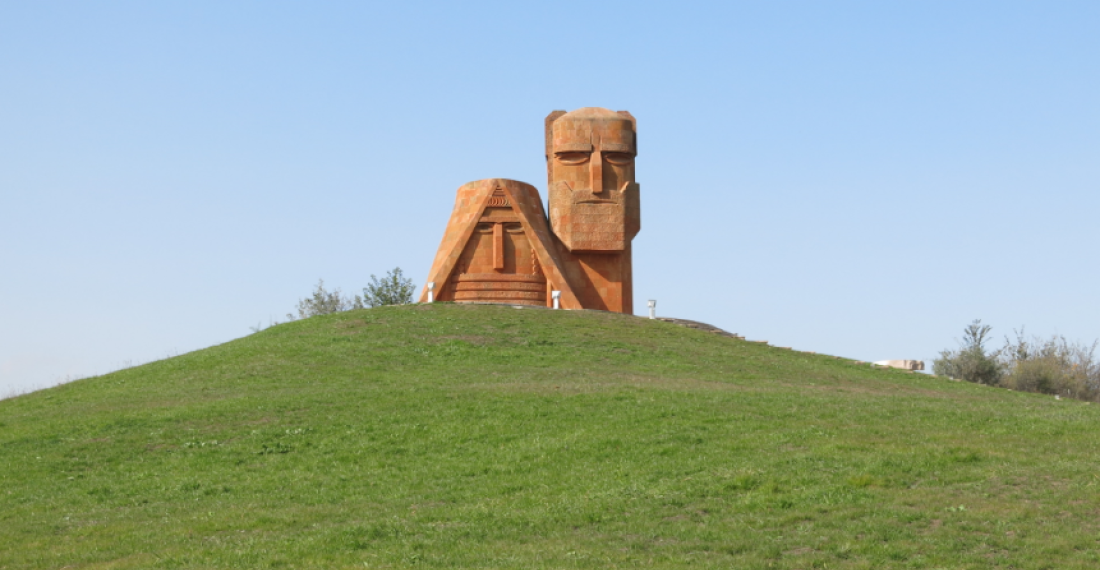After a long stand-off, a one day war which left hundreds of casualties, and a series of long overdue face to face talks, the Government of Azerbaijan has agreed terms with the leaders of the Armenian community of Nagorno-Karabakh which will see Azerbaijan assuming back full control of the territory after a failed secessionist movement which lasted more than three decades.
It was a long and eventful week. On Tuesday (19 September) Azerbaijan launched a military operation after a series of incidents during which it said six servicemen and civilians were killed by recently planted Armenian mines. The operation, officially described by Baku as an anti-terrorist operation lasted twenty four hours, during which Azerbaijan hit hard military positions of the armed formations of the self-declared Nagorno-Karabakh Republic. The government of the Republic of Armenia declared that it would not be drawn into the conflict. Fighting stopped when the Armenians of Karabakh agreed the terms laid by Baku, and communicated by the Russian forces in Karabakh, namely to disarm. Fighting stopped on Wednesday, and on Thursday, representatives of the two sides met in the town of Yavlakh.
The leadership of the Armenian community of Nagorno-Karabakh has now published the points agreed by the two sides at Thursday’s meeting in an official notice released by the Artsakh Information Centre. It contains six points, which the Centre says are already being implemented, namely:
- withdrawal of units of the Defence Army from combat positions and their transfer to places of permanent deployment in parallel with the process of disbanding the Army,
- search efforts for dead and missing people,
- transportation of the wounded, who are in serious and extremely serious condition, as well as patients, to medical institutions in Armenia, accompanied by the International Committee of the Red Cross and Russian peacekeepers,
- import of humanitarian supplies, medicines, essential goods and fuel into Artsakh via the Goris-Stepanakert highway through the mediation of the Russian peacekeeping mission.
- the start of work to restore power supply on September 24,
- organizing political consultations on the future of Artsakh and its people.
Azerbaijani troops have now consolidated their control over outlaying villages and settlements around the administrative capital of Nagorno-Karabakh, Stepanakert, but have not entered the town itself. It seems they will not, yet. In an interview with the Azerbaijani Service of Radio Free Europe/Radio Liberty, Farid Shafiyev, Chairman of the Center for the Analysis of International Relations (AIR Centre) – an Azerbaijani government think tank, said that ”until 2025, the Azerbaijani military and police will not be in Khankendi [Stepanakert],", and that the Russian forces will be responsible for security.
Humanitarian aid has now reached Stepanakert through the Russian forces and the International Committee of the Red Cross. It is also reported that SOCAR oil-tanker vehicles has also delivered much needed fuel.
In the meantime Baku has appointed a task force, led by deputy Prime Minister Shahin Mustafayev to deal with the logistics of the humanitarian operation that is going to be necessary. Mustafayev is an Armenian speaker, and his appointment indicates a willingness on Baku's part to go the extra mile to reach out to the Karabakh Armenians.
For the people in Stepanakert however, this is a traumatic moment, full of uncertainty and concerns, and much work will need to be done before these fears are addressed.
commonspace.eu political editor said in a comment that Azerbaijan is de facto in control of Nagorno-Karabakh, but it understands it needs to thread carefully amidst widespread warnings against ethnic cleansing. Baku needs to re-assert control over the territory whilst creating enough conditions for the Armenian population to stay and not depart en masse. The first task is to deal with the immediate aftermaths of fighting of the last days, namely bury the dead, provide for the wounded and managing the problem of displaced persons. There are also issues related to alleviating the suffering of the civilian population who had been under a blockade for a number of months. Then the more difficult task of trying to find a right political model for Karabakh will start. The last days have seen the end of an era in Karabakh, another one is about to start.
source: commonspace.eu with agencies
photo: Monument symbolizing the Armenian character in Nagorno-Karabakh (archive picture)



